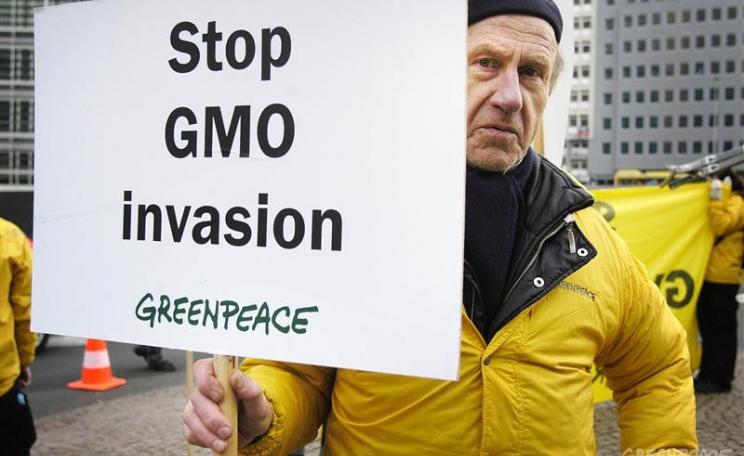At a time of year when we are supposed to be practising good will, spare a thought for the poor factory-farmed turkey.
These days turkey is by far the most popular choice for the centrepiece of our holiday table. Prior to the second world war it was something of a luxury in the UK, but postwar industrialisation brought the price of turkey down dramatically and it wasn’t long before it became the preferred Christmas meat.
Approximately 90 per cent of the turkeys eaten in the UK come from conventional closed housing operated by ‘all year round’ large intensive producers. These houses may hold as many as 25,000 birds.
The rest come from smaller producers and are reared in either pole barn (with limited outdoor access), free range or organic systems.
Two companies – Bernard Matthews and Cranberry Foods – dominate the UK turkey sector, and overall we spend approximately £365 million at the checkout on turkey meat each year.
Christmas is the real boom time for turkey farmers, however. Some 90 per cent of UK families are expected to serve a turkey for Christmas dinner. Of the nearly 17 million turkeys produced the UK each year, around 10 million are eaten at Christmas.
Factory farming: it ain't just chickens
While most of us have got our heads around the problems related to factory broiler chickens, the problems of factory turkeys are still ignored. Some 85-90 per cent of the turkey we eat is intensively reared, and turkeys suffer from many of the same welfare problems as broiler chickens.
The basic issues most of us can guess at. They include overcrowding in noisy, dirty environments with little or no access to outdoors and no ability to express natural behaviour. But behind these lie a whole host of other abuses that most of us would find unpalatable.
Like chickens, intensively reared turkeys are subjected to painful beak-trimming. It’s a traumatic procedure, performed without anaesthetic (used to ‘fix’ the tendency towards aggression and reduce injuries and cannibalism, which arises in birds kept in unnatural and crowded conditions). Beak-trimming is painful, damages tissue and nerves, and renders the bird unable naturally to explore and ‘sense’ the world around it through its beak.
Turkeys are also victims of genetic manipulation. The turkey of the past was a much smaller bird than the one we eat today. Today’s bird is bred for fast growth and a higher proportion of breast meat. Selective breeding for rapid weight-gain, along with the use of high-nutrient feed, has meant that many conventional turkeys are too heavy to support their own weight. This can lead to lameness and leg/hip-joint infections.
Their large size and broad breasts mean male breeding turkeys (stags) are unable to mate naturally without risking injury to the female. As a result, artificial insemination has become routine. This procedure involves ‘milking’ the males for semen, and then catching and inseminating the females (hens) by tube/syringe.
Plucked turkey, clean conscience?
It’s a short, miserable life. A bird that could live up to 10 years in the wild is routinely slaughtered at anywhere between nine and 24 weeks. The majority of birds are suffocated with carbon dioxide and killed in large, semi-automated slaughterhouses.
The turkeys are removed from their transport crates and hung upside down by their legs from shackles on a moving line. At slaughter, the birds can weigh anything from 5-28kg and the shackles cause considerable pain to heavier birds during this process.
And so they arrive at our tables, plucked, cleaned and with nothing to alert most consumers to the kind of conditions they have been reared in.
The Ecologist has reported elsewhere on the cruelty of factory farming – for instance, the suffering of pigs as exposed in the film Pig Business, and the dangers to public health of keeping both birds and pigs in ludicrously crowded conditions where superbugs are more likely to breed.
There is no getting away from the fact that animals reared with the single goal of providing cheap meat for consumers are reared in ways that turn most of our stomachs, and diminish both our lives and theirs.
A wing, leg or breast and a prayer
So what to do? This is not a BTL plea for a veggie Christmas – though the reality of life for the majority of turkeys (and other animals) on British farms should be enough to make you at least wonder about alternatives such as tofu turkeys and hearty nut roasts.
Of course we can shop better. At any time of year, the big question is whether we can continue to justify the ongoing cruelty of factory farming – so much of which is hidden behind confusing labels – and whether we are willing to take a stand at the supermarket checkout.
A forthcoming report from Compassion in World Farming and OneKind will provide a detailed analysis of the welfare standards of the major farm assurance schemes in England and Scotland, comparing them to each other as well as analysing how they stack up to standard industry practice and minimum legislative requirements. What becomes clear is that some labels mean more than others when it comes to animal welfare (see below).
Like so much of the Behind the Label series, this is a plea to become more conscious of the assumptions we make, the buying rituals we take part in and the damage these can inflict. When we buy products laced with chemicals, we inadvertently support a chemical industry that is polluting our bodies and polluting the planet. When we buy meat, poultry, eggs and dairy products that are produced in cruel and unethical ways, we are de facto showing our support for such practices.
Then there is the bigger picture. Recently the farm animal has become part of a new complicated twist in the environmental story that we should all be watching out for. Animals in more natural systems are part of a virtuous circle of food/feed/waste. Factory-farmed animals are an environmental nightmare of our own making, though very often the blame is placed on the animal (for example, the methane emissions from cows or the ammonia emissions from poultry farms) rather than the system itself.
Blaming the animal opens the door for every kind of eco-technofix – from anaerobic digesters that need more and more waste from more and more animals to keep them going, to the genetic engineering of animals that don’t emit so much methane – designed to make a lousy system just a little bit less lousy, and colour the factory-farm system a slightly darker shade of greenwash. Let’s nip this one in the bud now.
This holiday season, let’s take a look at this bigger picture, get our thinking straight and make our values shine through in our actions. Here’s to an ethical holiday table and a compassionate new year.
Pat Thomas is a freelance journalist and former Editor of the Ecologist
More on your Christmas meal
If you are going with turkey (see below for the most ethical choices, and the ones to avoid) then here's how to cook it. If you're a vegetarian, or fancy giving the real thing a miss for ethical reasons, then there are a host of alternatives available, including a Tofurky roast, Linda McCartney vegetarian roast or Quorn family roast.
If you enjoy a Christmas tipple then be sure to invest in better booze, while teetotallers – or those who have overdone it already – may enjoy our Behind the Labels on orange juice and Diet Coke. Festive decorations such as candles and treats such as chocolates are not all they claim to be, and for those who are looking for an excuse to avoid the post-prandial washing up then get the low-down on Fairy Liquid.
Labels to trust
Organic
Turkeys reared organically live in smaller flocks and overall stocking densities are much lower than on conventional farms. The birds have outdoor access with the provision of perches and overhead cover outdoors. Beak-trimming is prohibited, as is cruel carbon dioxide stunning at slaughter. Organic standards also require that a much slower-growing breed of bird be used. Buying organic in the UK is arguably your best guarantee of a bird raised to high ethical and welfare standards.
RSPCA Freedom Food
These standards cover both indoor and free-range systems, and offer a number of welfare benefits compared with standard industry practice. These include lower stocking densities and an enriched indoor environment that includes perches, straw bales and pecking objects. Beak-trimming is restricted rather than prohibited. Carbon dioxide stunning is discouraged but not prohibited.
Free Range
What qualifies as ‘free-range’ for turkeys is legally defined. The birds must have had continuous daytime access to open-air runs for at least half their life. Other requirements for housing and feed also apply. Turkeys labelled as free range will often be certified by an assurance scheme such as RSPCA Freedom Food or Quality British Turkey, but a free-range RSPCA turkey is likely to have had a better quality of life than one under the Quality British Turkey standard (see below). And a free-range organic turkey the best quality of life of all.
Labels that mean nothing
Red Tractor/Quality British Turkey
These standards offer little more than compliance with minimum legislative welfare requirements. Unless accompanied by a free range or organic label, a turkey carrying this label is likely to have been reared intensively.
| READ MORE... | |
 |
SPECIAL CONTENT Ecologist guide to a green Christmas From Darina Allen's mountain picnics, to Mark Boyle's moneyless meditations and Craig Sams decorating with fungi, 11 environment-minded luminaries tell us what they'll be doing this festive season |
 |
COMMENT Stuff your face like a pre-Reformation Christian We've inherited an unhealthy, puritan attitude to food and sensory pleasure, says Tom Hodgkinson. Taking a leaf out of the books of our medieval ancestors would do us all good... |
 |
GREEN LIVING How to recycle seasonal waste From unwanted gifts to wrapping paper, how much rubbish will you produce this Christmas? Here are some suggestions for minimising your festive footprint |
 |
GREEN LIVING DIY Christmas Eschew those store-bought baubles and pricey trinkets — get into the holiday spirit with all things homemade. By Matilda Lee and Laura Sevier |
 |
GREEN LIVING How to cook your Christmas turkey Naturally reared, free range turkeys are more flavoursome, says Irish chef Darina Allen. Here is her guide to cooking old-fashioned roast turkey with chestnut stuffing and bread sauce |








